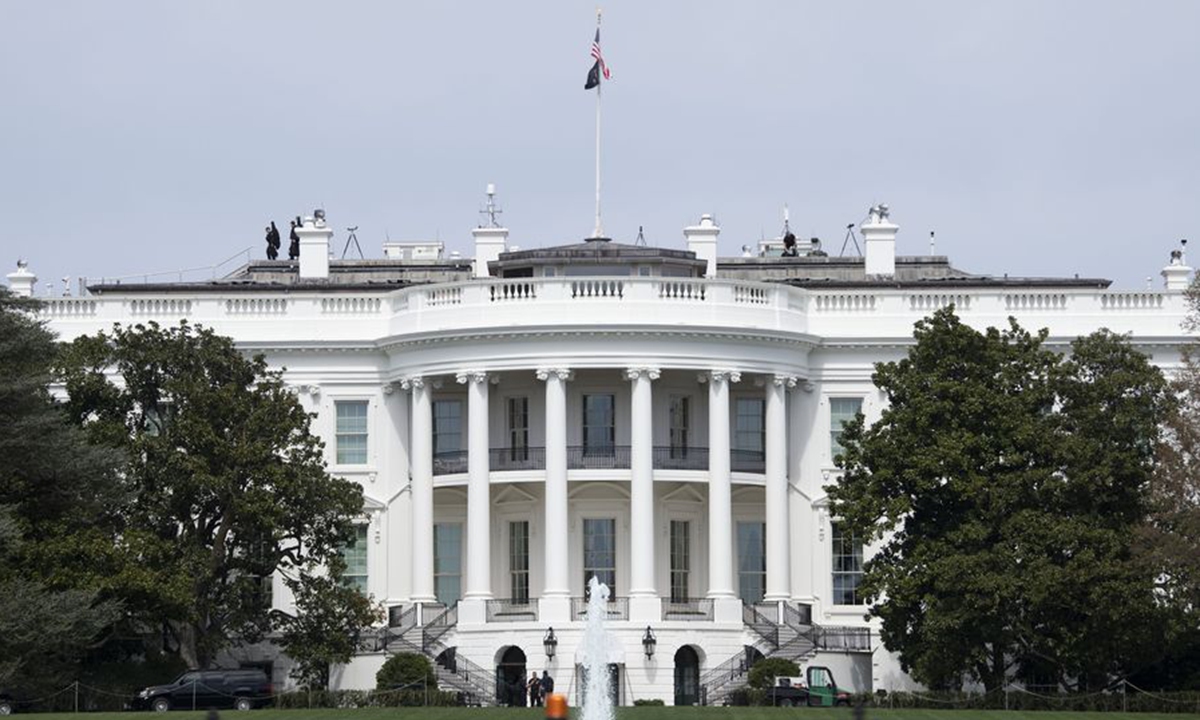
White House Photo: Xinhua
US President Joe Biden is scheduled to visit South Korea and Japan from May 20 to 24. One focus of his first trip to Asia since he took office is to push for the so-called Indo-Pacific Economic Framework (IPEF), which is expected to be formally launched during his visit to Japan.
Washington is trying hard to talk up the deal as a way of boosting trade ties with its allies. But US officials also can't help themselves but boast the US' real goal: to isolate China. Unfortunately for the Biden administration, the IPEF will just be another futile attempt. In the history of global trade, there has never been a successful economic and trade cooperation framework that focused on geopolitical division, instead of efforts that actually promote trade such as tariff reduction and market access expansion.
US Commerce Secretary Gina Raimondo said on Tuesday that the IPEF will focus on building key areas in economy and supply chain in the decades to come, but judging by US officials' remarks about the economic initiative, it will be nothing but another US attempt to form economic "small circles" that exclude China - another addition to Washington's "small cliques" in the security sphere.
Raimondo had previously said that the IPEF is about harmonizing export controls to limit sensitive products exported to China. Moreover, US Ambassador to Japan Rahm Emanuel told Nippon TV that China will not be invited to participate in the US-initiated IPEF, while US Trade Representative Katherine Tai described the IPEF as an arrangement separate from China.
Such remarks made it clear that the Biden administration brought up the IPEF not to promote economic prosperity in the Asia-Pacific region, but to rope in other regional countries in "decoupling" from China, creating division in the region.
In fact, this is not the first time for the US to form economic cliques or small circles in attempt to contain China's rise.
In the past, the US sought to marginalize China by building the so-called high-standard trade network under the Trans-Pacific Partnership (TPP), but pulled out later because of the reluctance to open up its own domestic market, leaving its allies and others hanging. The TPP, which was designed to target China, became the CPTPP and China has applied to join in it. In many ways, the IPEF is not even close to the TPP.
This time, under the IPEF, it seems that the Biden administration will be even more conservative in sharing trade dividends with other countries. If there is no practical economic benefits for participating countries, the empty talk about supply-chain resilience and security makes no sense for regional countries.
The US' reluctance to unleash more trade dividends is an apparent demonstration of how the US sees Asia-Pacific countries as a tool to contain China's development, with little regard for their interests.
If the US was sincere about strengthening economic and trade relations with Asia-Pacific countries, or if it really attaches great importance to the economic ties with the region, its senior officials would not have turned a blind eye to the fact that the Asia-Pacific economic development is intertwined so closely with China that they cannot be separated - not without facing massive losses.
China has become the largest trading partner of almost all ASEAN members, with Chinese investment to ASEAN rapidly rising. Moreover, China is also South Korea's largest economic and trading partner, accounting for almost 25 percent of South Korea's foreign trade.
Given China's role in regional industrial chains, even if the US gets some countries to join in the IPEF, it will only become a "castle in the air" without actual economic value.
In stark contrast to the protectionist policy orientation in the US, China will continue to push forward with broader opening-up, breaking the US' containment plan with an open spirit. It is during the interactions with the world that the Chinese economy has accomplished the current achievements. And to share the dividends of common development with the rest of the world, China will build a market-oriented international business environment, ensure high-level implementation of the Regional Comprehensive Economic Partnership, and promote the high-quality development of the Belt and Road Initiative.
Currently, the world economy is facing many difficulties due to the COVID-19 pandemic and other factors. To tackle these difficulties, the world needs an open spirit, not the US-led small circles aimed at disrupting global industrial chain.




